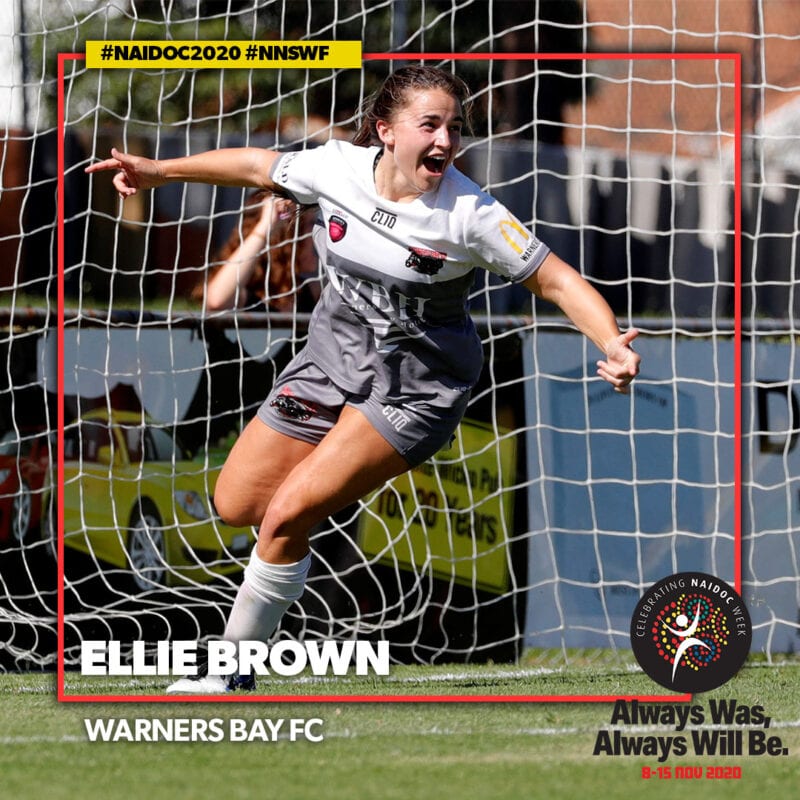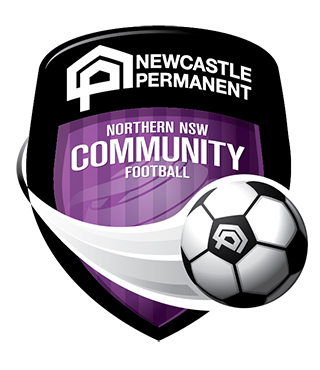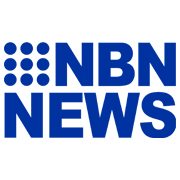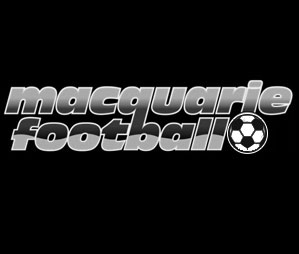22-year-old, Warners Bay, Women’s Premier League player and proud Yuin Aboriginal woman, Ellie Brown, is passionate in creating Indigenous sports teams and bringing people together through sport.
Ellie sat down with Northern NSW Football’s, Female Participation and Inclusion Officer, Annelise Rosnell to discuss football and her thoughts on this year’s NAIDOC Week theme: Always Was, Always Will Be.
Tell us about yourself and your experience in football.
I’ve been playing football for the last 18 years and have just finished a Bachelor of Medicine and will be starting as a doctor on the Central Coast in January.
My Aboriginality comes from my Grandmother’s side – she grew up on the South Coast of NSW, then moved to La Perouse in Sydney and raised my Dad, Auntie and Uncle before finally settled on Darkinjung Country on the Central Coast – where I grew up.
I’ve played football all my life. I jump around and play other sports in the Summer, but something always draws me back to football. I love it! That feeling of running towards goal with the ball at your feet… or when a teammate scores.
Where & when did you start playing football?
I started playing when I was 4 years old at Gwandalan Summerland Point Football Club.
I was too young to play on the field against other teams so I just went to the training and ran around with the boys.
I kept coming back year-after-year to play. I had some great seasons there especially in the women’s sides. When I moved to Newcastle for University I played with the University Team and then ended up at Warners Bay in the WPL.
Who was your football inspiration?
Early on I never really looked up to any famous football players and no one in my family played or watched football, we were more of a rugby league family.
But my Grandfather placed a high importance on sport in general, so it always felt good to be able to have something to talk to him about.
When I was a bit older I started following women’s football a little closer and my favourite player was Kyah Simon by far! Kyah played for the Central Coast Mariners and was the first Indigenous Australian player to score in a FIFA World Cup.
I remember when I was 11 or 12 I went to a friend’s birthday party and we had to dress up as something or someone starting with “K” so I taped “Simon” across the back of my playing shirt and went as Kyah.
What do you feel is/was your proudest football moment?
There have been a lot of good moments over the years, but fresh in my mind is this year’s Major Semi-Final versus Broadmeadow Magic, where we won 5-4.
I scored a goal and the feeling in such a tight game was like nothing else. I don’t really score that much so it was a proud moment for me.
What role do you believe football plays in the celebration of our Indigenous athletes?
Football could potentially have a huge role in celebrating Indigenous athletes, but the truth is, there aren’t very many in our sport.
As a sport in Australia, Football is well behind many other codes like Rugby League, Rugby Union and AFL in providing opportunities and pathways for Indigenous athletes.
In the last few years, more tournaments for Indigenous athletes have been created including the National Indigenous Football Championships played in Nowra and Brisbane which I’ve attended with Walanga Muru and the Newcastle Aboriginal All Stars. The event was a real celebration of sport and representation of culture. It’s like the knockout tournament of Indigenous Football!
Hopefully, we as a sport, can continue to build on these tournaments, keep drawing Indigenous players into football and maybe one day, will have an Indigenous round like we do in other codes.
I strongly believe the more Indigenous players that we have playing at a higher level, the more Indigenous kids will be drawn in to play – you can’t be what you can’t see.
What does the 2020 NAIDOC Week Theme “Always Was, Always Will Be” mean to you?
This year’s NAIDOC theme to me is about the need for truth-telling of Australia’s real history.
I know most people my age grew up learning about white history, colonisation, and things like the gold rush. We grew up mostly in ignorance of the 65,000-year-old culture that came before us, but White history doesn’t even represent a second of time on the clock of Australia’s real history.
It also to me highlights that even though terrible things have happened to Aboriginal Australians and continue to happen today; the Stolen Generation, incarceration, mining companies and governments destroying thousand-year-old sacred Aboriginal sites. No matter what happens, this land always was and always will be Aboriginal land.
Aboriginal people have cared for this land for thousands of years, nurturing it in a mutual relationship – nothing will break that, not police, not governments, not a global pandemic.







